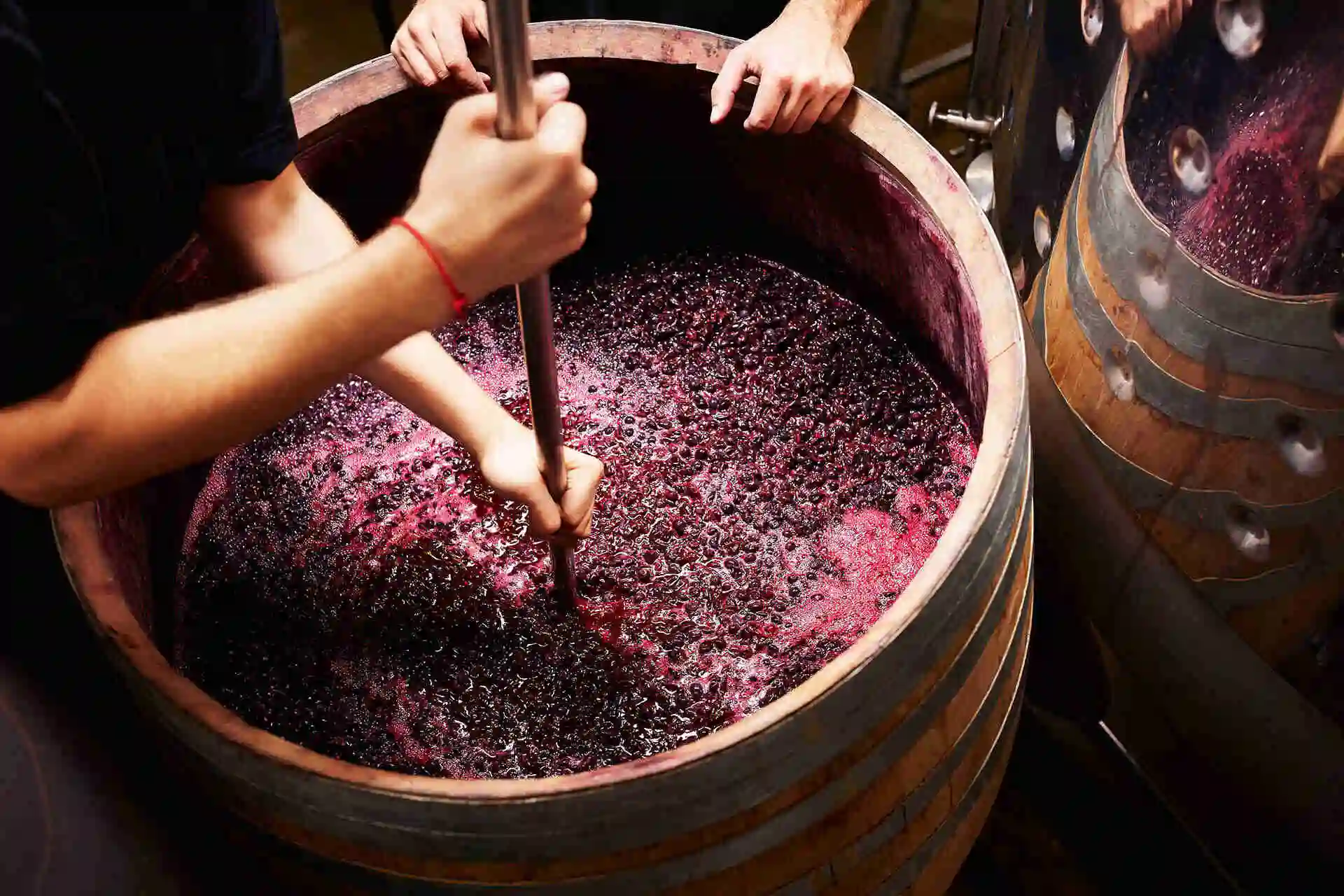
Alcohol fermentation is a fascinating process that has played a significant role in human society for thousands of years. From the production of beer and wine to the creation of spirits, alcohol fermentation has become an integral part of our culture and social gatherings. While most of us are familiar with the basic concept of fermentation, there are several surprising facts about this chemical transformation that often go unnoticed. In this article, we will explore 12 intriguing facts about alcohol fermentation, revealing the science behind the process and shedding light on some unexpected aspects. So, grab a drink, sit back, and prepare to be amazed by the remarkable world of alcohol fermentation.
Key Takeaways:
- Alcohol fermentation is a natural process that has been used for thousands of years to make beverages like wine and beer. It involves converting sugar into alcohol and carbon dioxide, creating unique flavors and aromas.
- The temperature, microorganisms, and duration of fermentation all play a role in creating the flavors of alcoholic beverages. Proper control and monitoring are crucial to prevent unwanted “off” flavors and ensure a high-quality final product.
Alcohol fermentation is a natural process
Alcohol fermentation is a natural metabolic process that occurs in various species of yeast and bacteria. It is a biological process that converts sugar into ethanol and carbon dioxide.
It has been used for thousands of years
Since ancient times, humans have been harnessing the power of alcohol fermentation to produce beverages like wine, beer, and spirits. In fact, the earliest evidence of alcohol production dates back to around 7000-6600 BCE in China.
Different microorganisms can carry out alcohol fermentation
While yeast is the most common microorganism responsible for alcohol fermentation, other bacteria and fungi can also carry out the process. Each microorganism brings its own unique flavors and characteristics to the final product.
It requires anaerobic conditions
Alcohol fermentation occurs in the absence of oxygen, known as anaerobic conditions. This is why fermentation vessels are sealed to prevent the entry of oxygen, allowing the microorganisms to thrive and convert sugars into alcohol.
Alcohol fermentation produces more than just ethanol
During the fermentation process, carbon dioxide is also produced alongside ethanol. This is why you often see bubbling in fermentation vessels, as the carbon dioxide is released as a byproduct.
The temperature affects the fermentation process
The temperature plays a crucial role in alcohol fermentation. Different types of yeast have specific temperature ranges in which they can efficiently carry out fermentation. This is why brewers and winemakers carefully control the temperature during the fermentation process.
The duration of fermentation varies
The duration of alcohol fermentation depends on several factors, including the type of microorganism used, the temperature, and the sugar content of the mixture. It can range from a few days to several weeks or even months for certain beverages.
Alcohol fermentation can be controlled or spontaneous
While commercial producers often use controlled fermentation processes to maintain consistency and quality, spontaneous fermentation can also occur. Spontaneous fermentation relies on wild yeast and bacteria present in the environment, creating unique flavors in beverages like lambic beers and natural wines.
It can be used for non-alcoholic beverages too
Alcohol fermentation is not limited to the production of alcoholic beverages. It is also used to produce popular non-alcoholic beverages like kombucha and kefir. In these cases, the microorganisms primarily consume sugars to produce beneficial acids and other compounds.
Alcohol fermentation affects flavors and aromas
The process of alcohol fermentation contributes significantly to the flavors and aromas of the final product. Different strains of yeast and bacteria produce various flavor compounds, including esters, phenols, and fusel alcohols, which give beverages their unique characteristics.
It can be infected by “off” flavors
During fermentation, if the environment is not properly controlled, the process can be affected by unwanted microorganisms, leading to the development of “off” flavors. This is why proper sanitation and monitoring are crucial in commercial brewing and winemaking.
Alcohol fermentation continues even after bottling
Even after the beverage is bottled, alcohol fermentation continues at a slower pace. This is why some beverages, like certain types of wine, can age and develop more complex flavors over time.
These 12 surprising facts about alcohol fermentation showcase the fascinating science behind the process that has been both an art form and a tradition for thousands of years. Whether it’s enjoying a glass of wine or savoring a well-crafted beer, understanding the intricacies of alcohol fermentation adds an extra layer of appreciation to these timeless beverages.
Conclusion
Alcohol fermentation is a fascinating process that has been used for centuries to produce alcoholic beverages. From its role in ancient civilizations to its importance in modern industries, fermentation continues to captivate scientists and enthusiasts alike. Through the conversion of sugars into alcohol and carbon dioxide by the action of yeast or bacteria, alcohol fermentation not only creates ethanol but also contributes to the unique flavors and aromas found in different alcoholic beverages.
Understanding the surprising facts about alcohol fermentation deepens our appreciation for this biochemical process. From the varying fermentation temperatures and the influence of different yeast strains to the production of secondary metabolites, alcohol fermentation is a complex and dynamic process. Moreover, exploring the impact of fermentation on health, the environment, and even the world of biotechnology opens up new avenues for research and innovation.
Whether you’re an aspiring brewer, a biology student, or simply an enthusiast looking to expand your knowledge, exploring the intricacies of alcohol fermentation unlocks a world of fascinating discoveries.
FAQs
Q: How does alcohol fermentation occur?
A: Alcohol fermentation occurs when yeast or bacteria break down sugars, converting them into alcohol and carbon dioxide through a series of biochemical reactions.
Q: What is the role of yeast in alcohol fermentation?
A: Yeast plays a crucial role in alcohol fermentation as it produces enzymes that convert sugars into alcohol and carbon dioxide. It also imparts distinct flavors and aromas to the final product.
Q: Are all alcoholic beverages produced through fermentation?
A: While the majority of alcoholic beverages are produced through fermentation, some spirits undergo additional processes such as distillation to increase their alcohol content.
Q: Can alcohol fermentation occur without oxygen?
A: Yes, alcohol fermentation is an anaerobic process, meaning it can occur without the presence of oxygen.
Q: What factors affect the outcome of alcohol fermentation?
A: Various factors such as temperature, yeast strain, sugar concentration, and pH levels can all influence the outcome of alcohol fermentation, resulting in different flavors and alcohol percentages.
Q: How long does alcohol fermentation typically take?
A: The duration of alcohol fermentation can vary depending on the type of beverage and the desired alcohol content. It can take anywhere from a few days to several months.
Q: Can alcohol fermentation be harmful?
A: Alcohol fermentation itself is not harmful, but excessive consumption of alcoholic beverages can have negative health effects.
Q: Is alcohol fermentation used in other industries besides beverage production?
A: Yes, alcohol fermentation is utilized in industries such as biofuel production, pharmaceuticals, and even the production of certain food products.
Q: Can different strains of yeast produce different flavors in alcoholic beverages?
A: Yes, different strains of yeast can produce distinct flavors and aromas in alcoholic beverages, contributing to the wide variety of flavors found in different types of beer, wine, and spirits.
Q: What is the significance of secondary metabolites in alcohol fermentation?
A: Secondary metabolites produced during alcohol fermentation can contribute to the unique flavors, aromas, and overall sensory characteristics of the final product.
Alcohol fermentation is a fascinating process, but there's more to explore in the world of beverages. Dive into the rich history and traditions of winemaking at the Georgian National Wine Festival. Uncover the science behind distillation and how it creates your favorite spirits. If you're a coffee lover, check out our top picks for the best cold brew coffee maker to elevate your home brewing game. From ancient techniques to modern innovations, there's always something new to discover in the ever-evolving landscape of drinks.
Was this page helpful?
Our commitment to delivering trustworthy and engaging content is at the heart of what we do. Each fact on our site is contributed by real users like you, bringing a wealth of diverse insights and information. To ensure the highest standards of accuracy and reliability, our dedicated editors meticulously review each submission. This process guarantees that the facts we share are not only fascinating but also credible. Trust in our commitment to quality and authenticity as you explore and learn with us.


